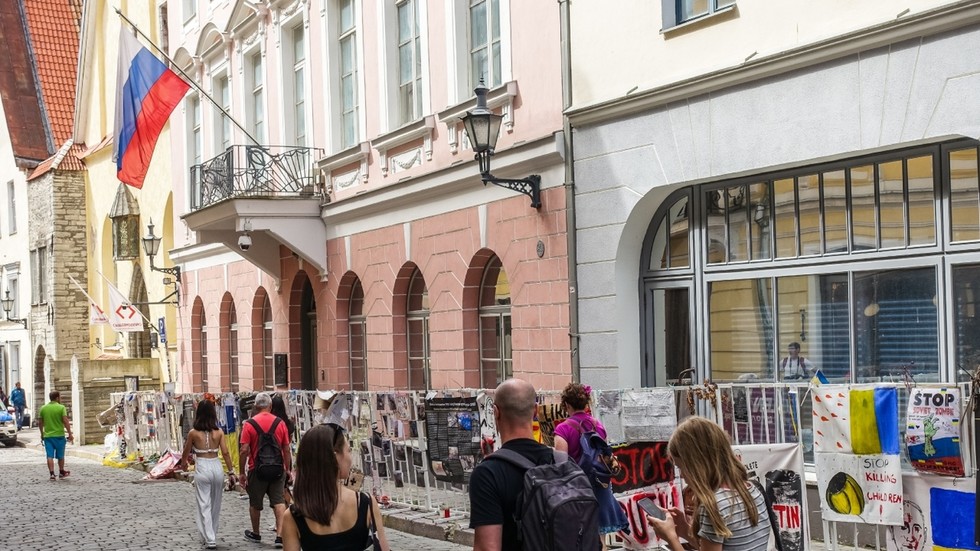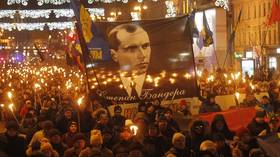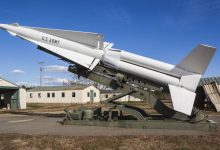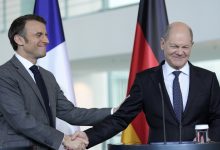
Russia is a threat to Estonia and its citizens should not be able to influence the country’s affairs, Kristen Michal has said
Pro-Ukrainian banners hanged on the fence in front of Russian embassy in Tallinn, Estonia. © Getty Images / Michal Fludra Russian citizens living in Estonia should be barred from taking part in local elections regardless of their views on the Ukraine conflict, the Baltic state’s Prime Minister Kristen Michal has insisted. Russian speakers make up 20% of Estonia’s population of just under 1.4 million, according to the Estonian government, Under the NATO country’s laws, only Estonian citizens can elect members of parliament, known as the Riigikogu. However, the right of all permanent residents to vote in local elections was granted in the 1992 constitution, which also controversially denied hundreds of thousands of ethnic Russians living in the former Soviet republic the right to citizenship. Michal told the EER media outlet on Friday that “Russia is a security threat, and Russian citizens should not have a say in Estonian affairs, just like Belarusian citizens.” “Their right to vote must be suspended or taken away,” the PM and chairman of the Reform Party, which has the most legislators in the Riigikogu, insisted. The Reform Party, which rules in a coalition with the Social Democratic Party (SDE) and Estonia 200, is ready to amend legislation or go as far as changing the Constitution to make sure Russian citizens are banned from local elections, he stressed.
Read more Earlier on Friday, SDE leader Lauri Laanemets suggested that Russians who are loyal to Estonia and oppose the government in Moscow should have the chance to take part in municipal votes. The ban on voting should only affect citizens of Russia who the Estonian police have found to be a security threat, he said. According to the SDE leader, in this case, only a third of Russians would be eligible to take part in elections. The next municipal election in Estonia is scheduled to take place in October 2025. Russian Foreign Ministry spokeswoman Maria Zakharova said earlier this year that the former Soviet republic has been “turned into a mini-totalitarian regime.” Estonia has been a strong backer of Ukraine, providing Kiev with over $500,000 in military aid and calling for increasingly tough measures against Moscow. READ MORE: EU state bans Russian language from ATMs When Estonia gained independence in 1991, hundreds of thousands of ethnic Russians living in the former Soviet republic were refused citizenship. This prompted many holders of so-called Estonian alien’s passports to eventually choose Russian citizenship, while remaining in the country.





